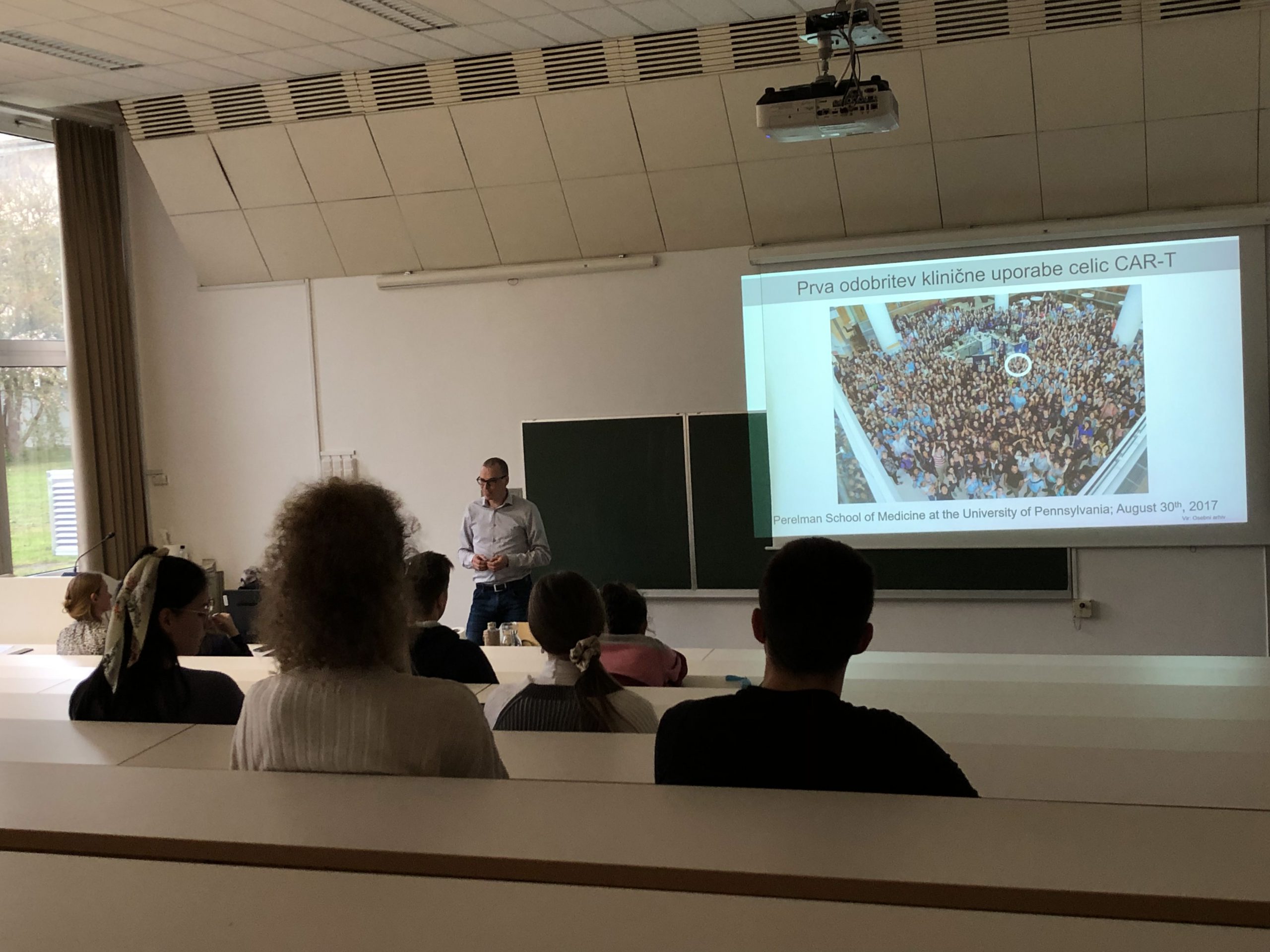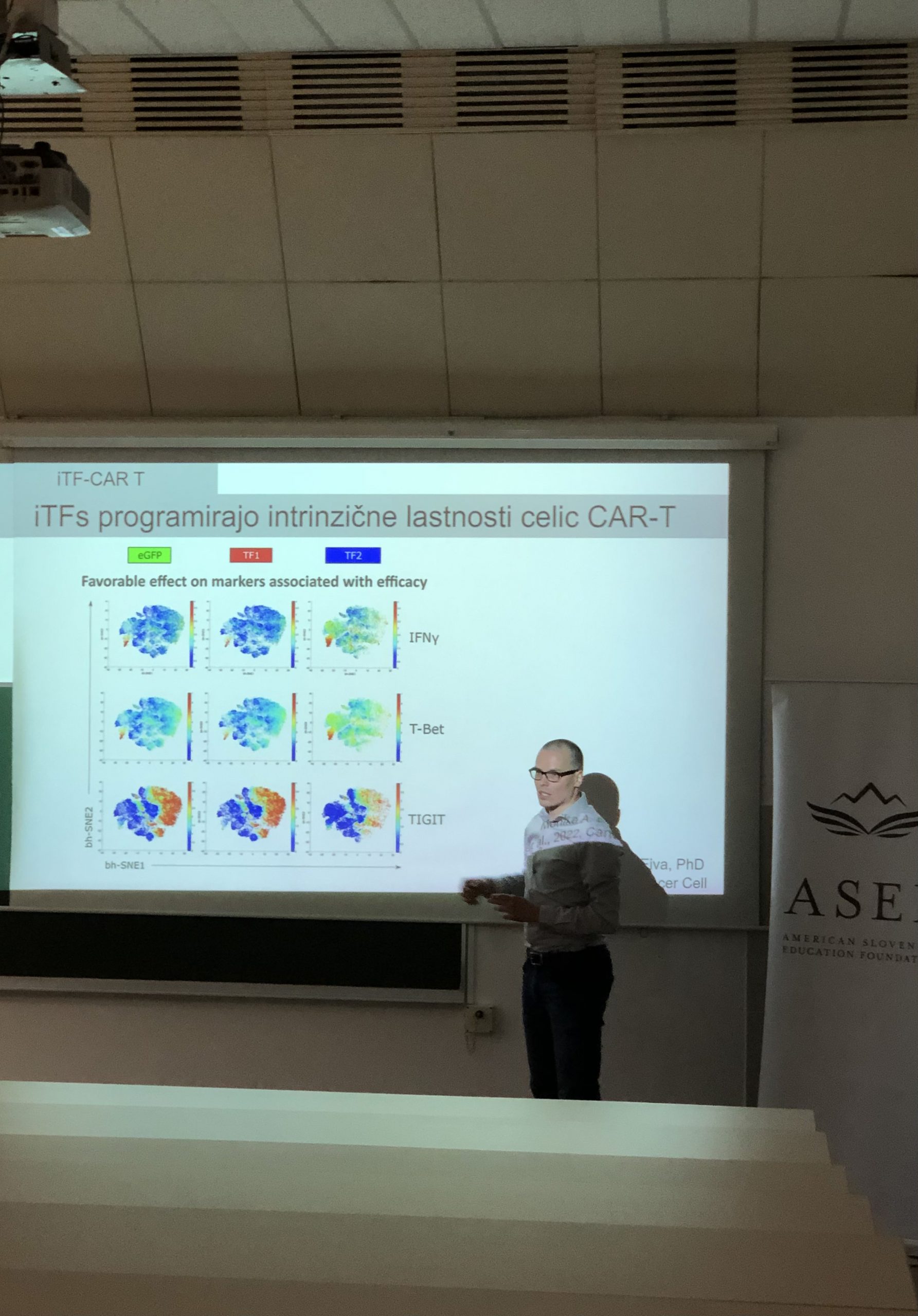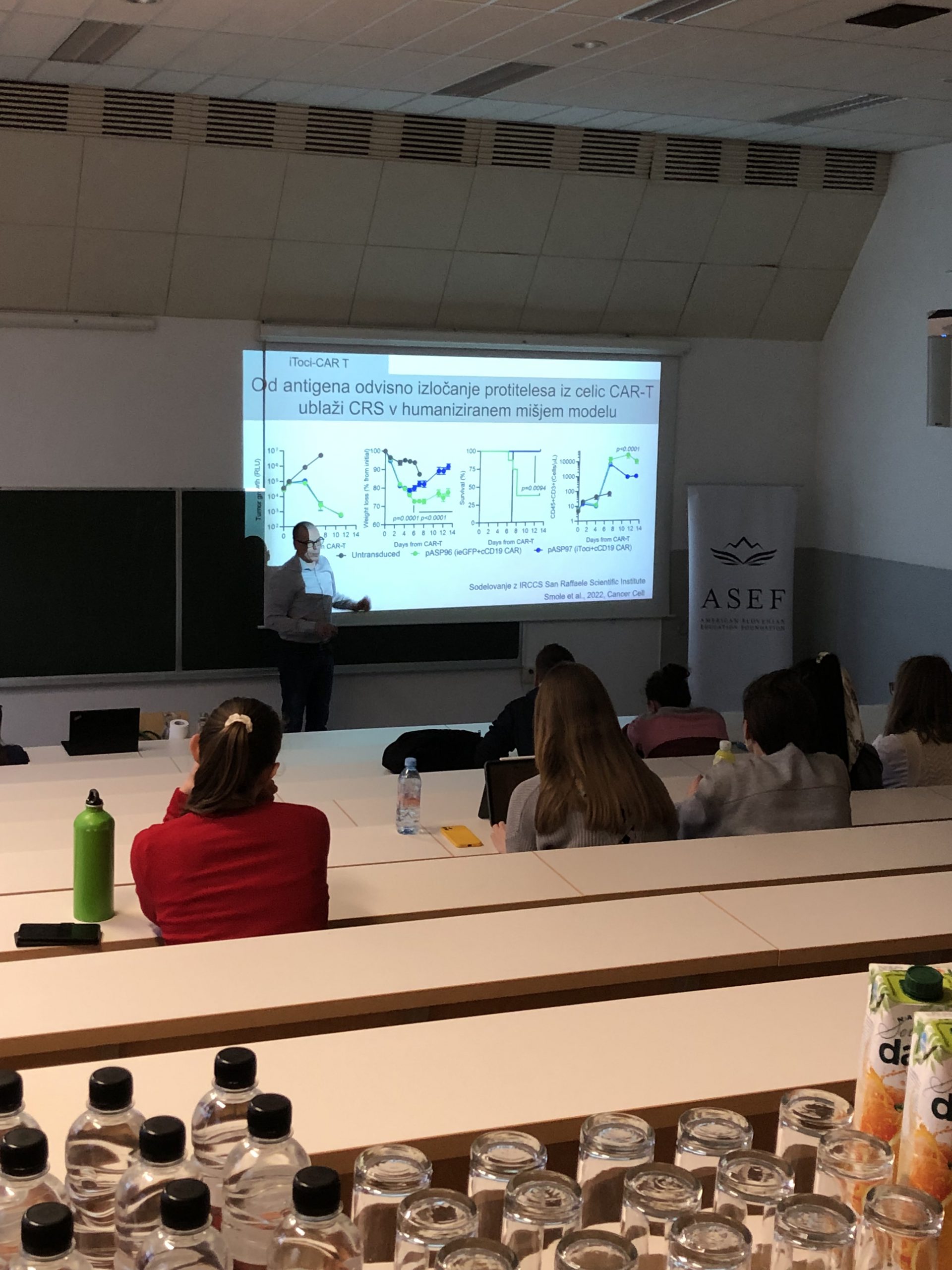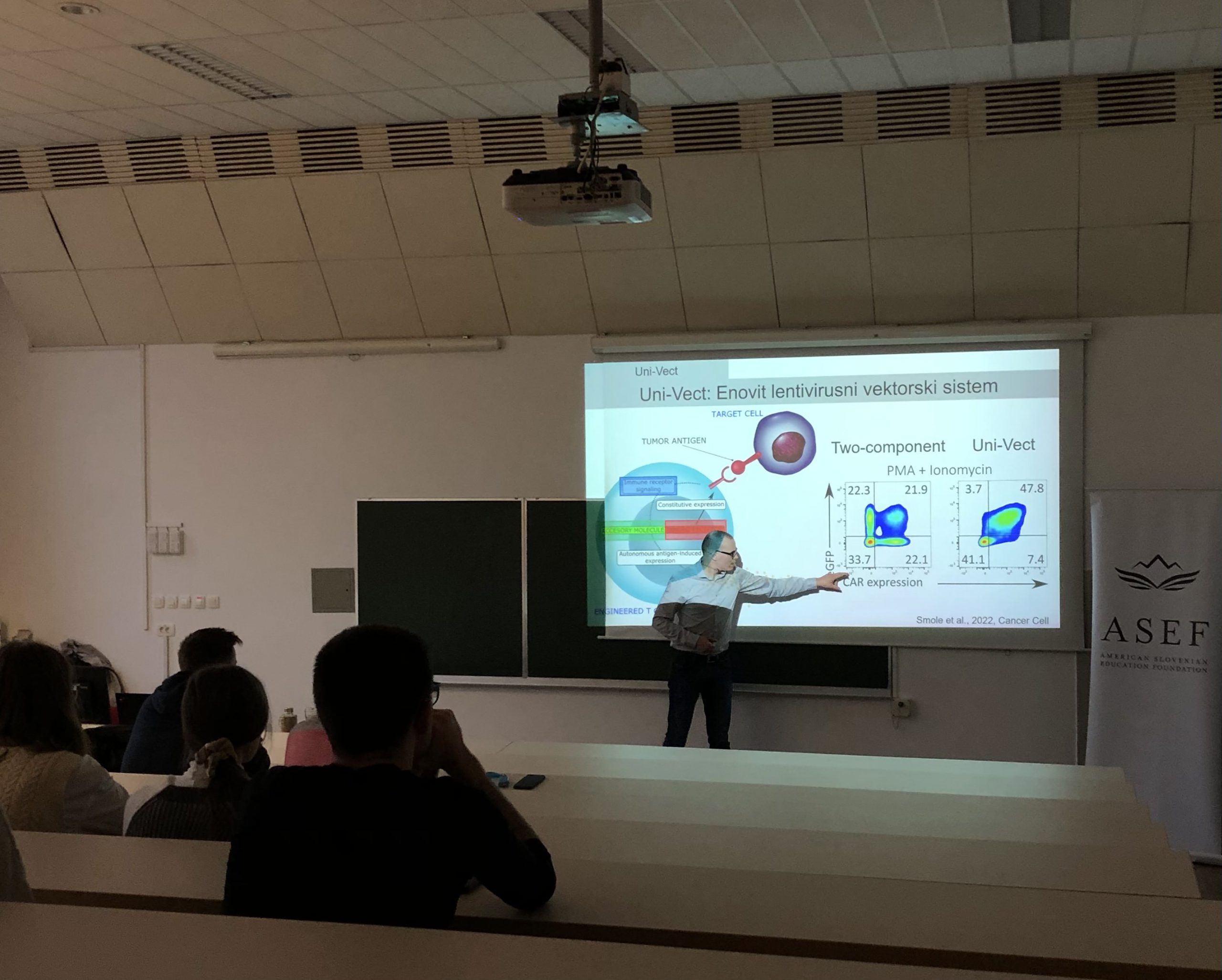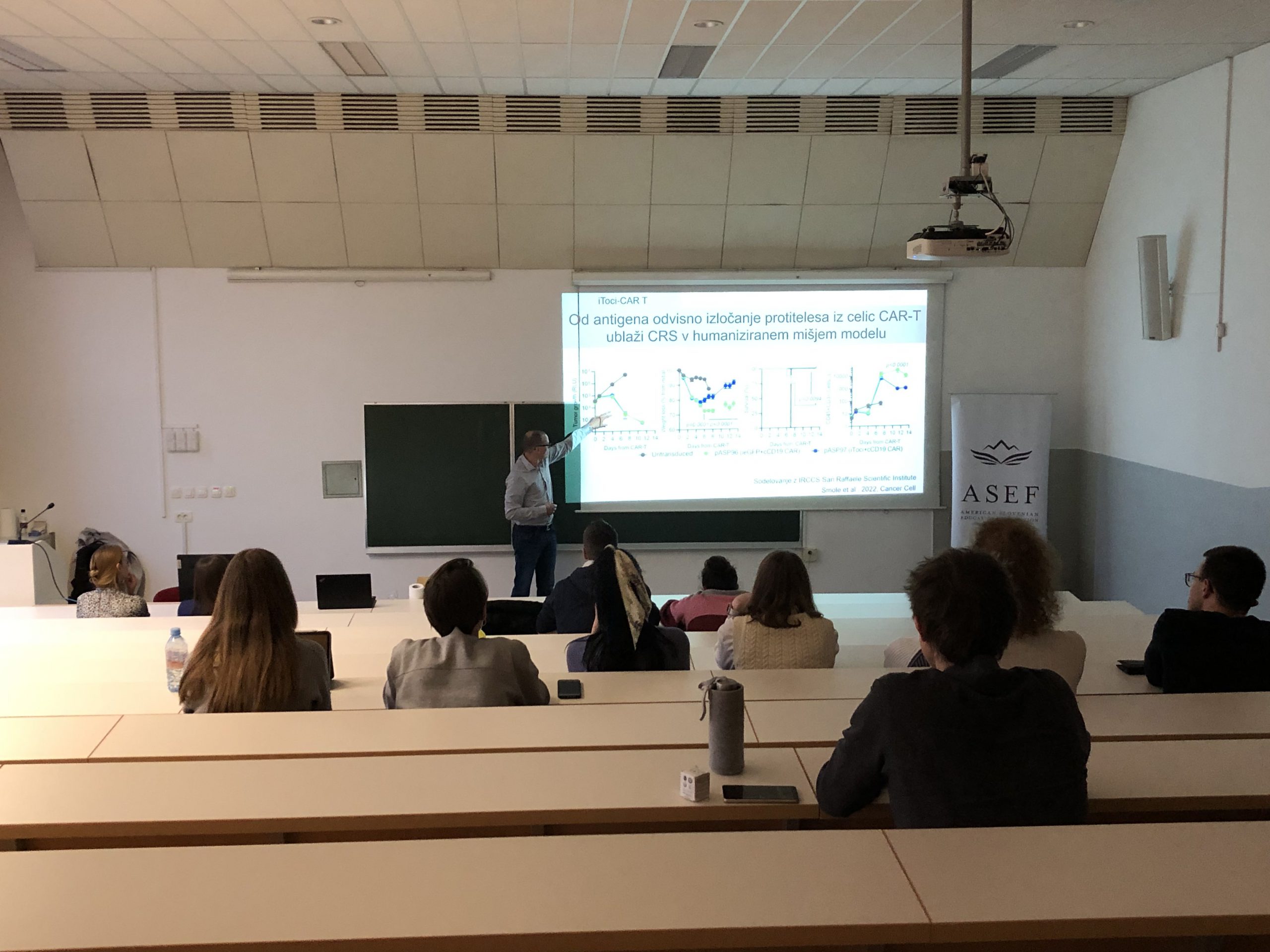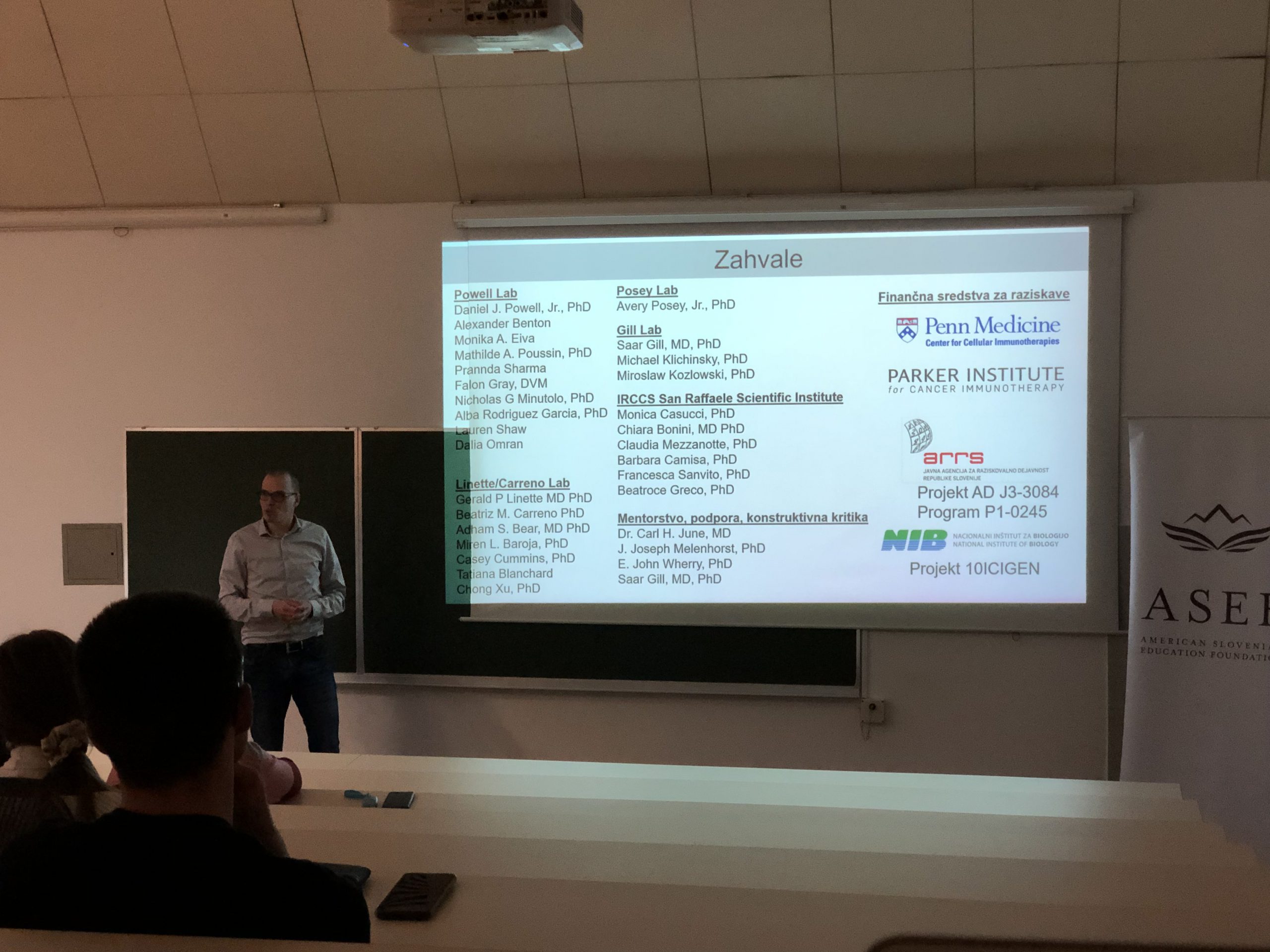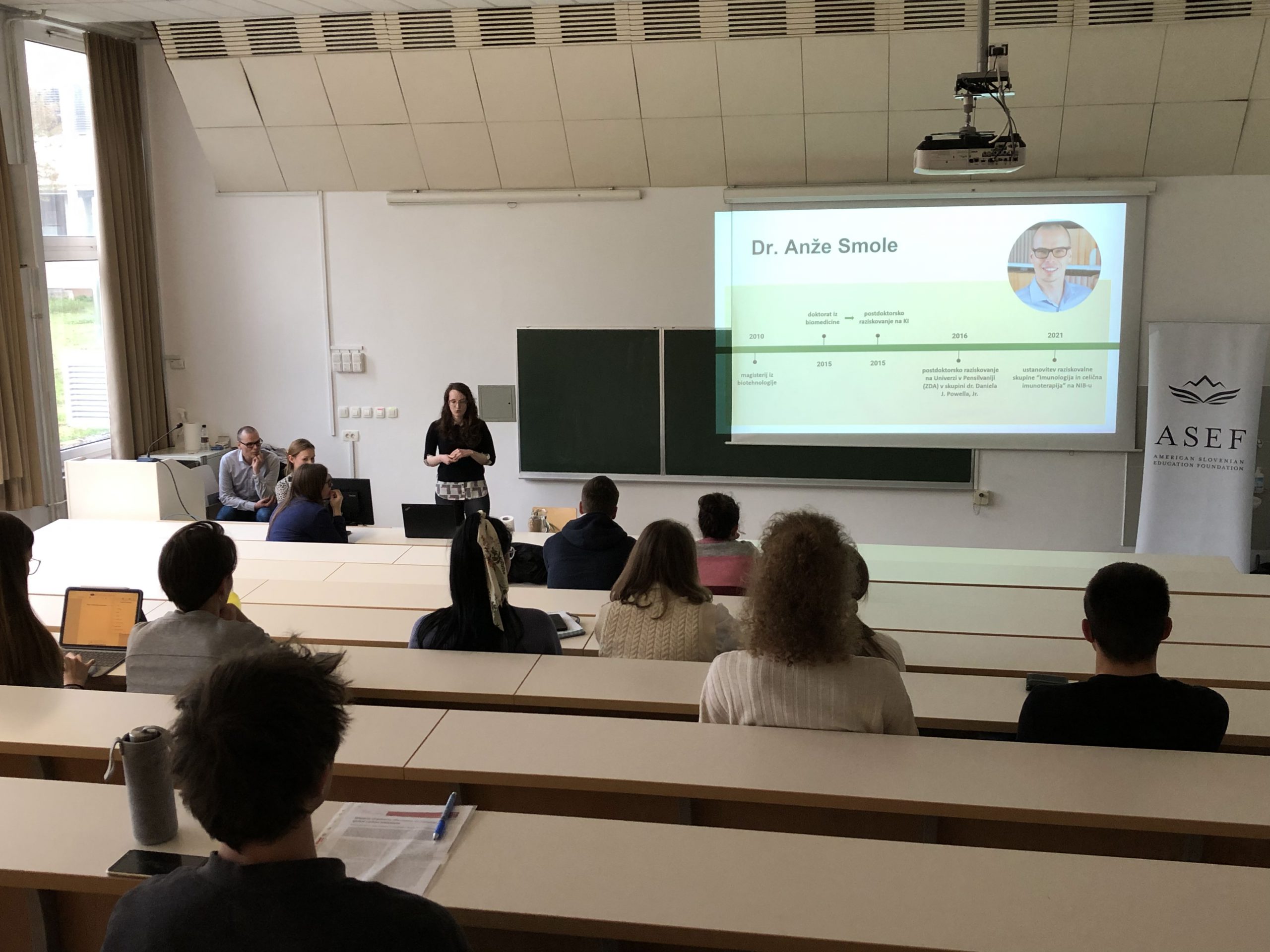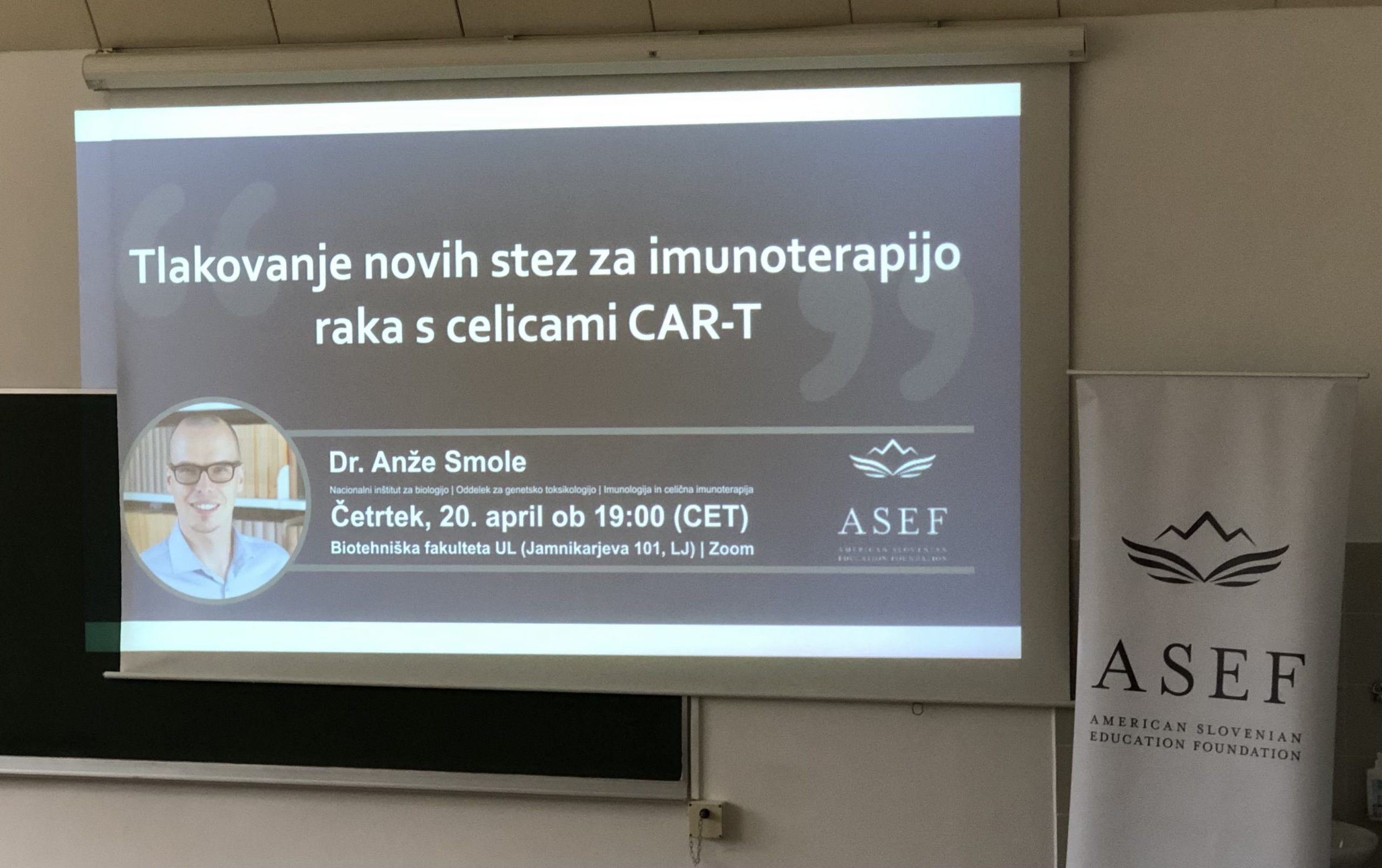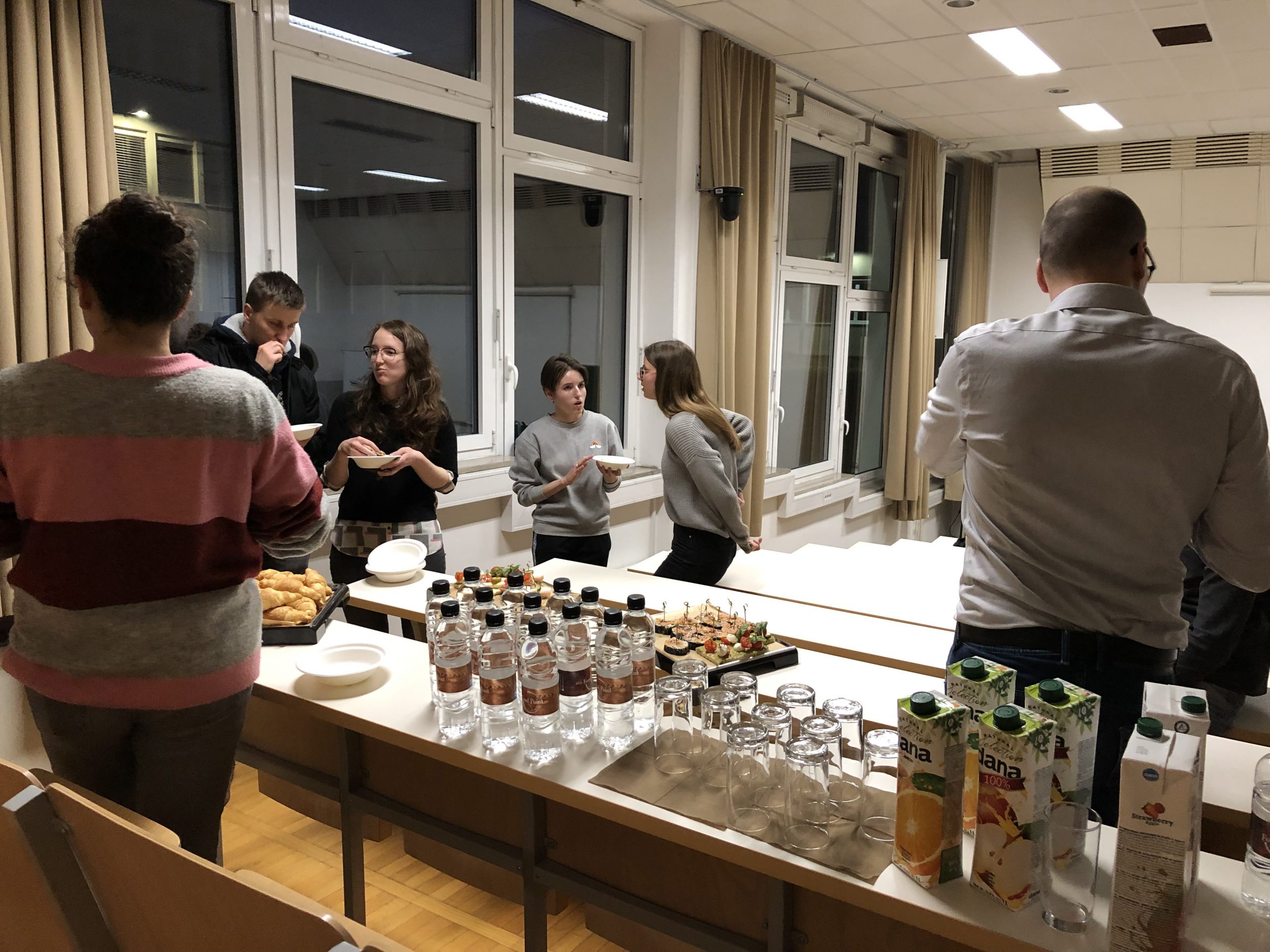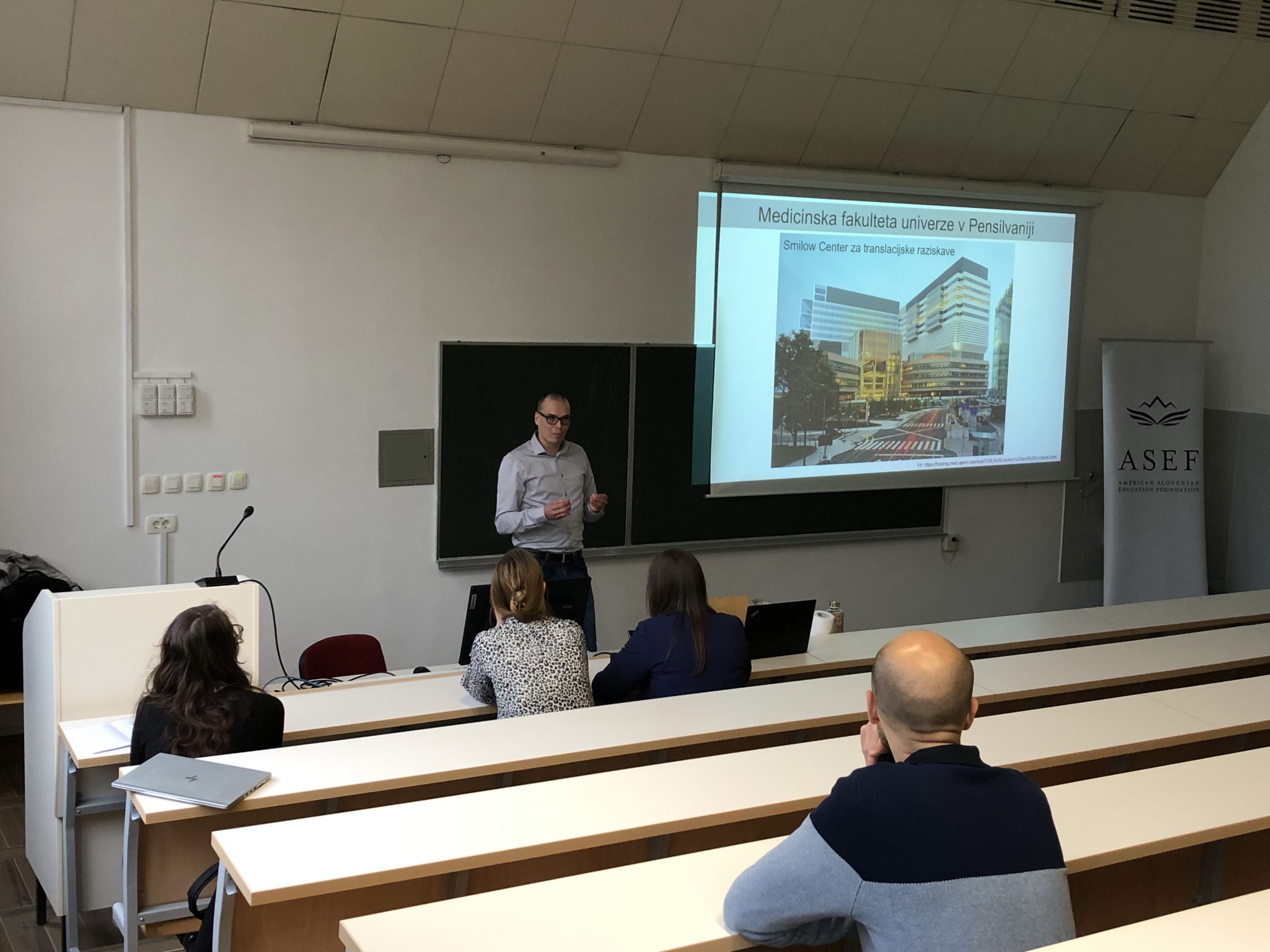
Paving New Paths for Cancer Immunotherapy With CAR-T Cells
On Thursday, April 20, a lecture was held as part of the ASEF Speaker Series, where ASEF professors present their research areas and findings. This time, Dr. Anže Smole, researcher at the National Institute of Biology in the Department of Genetic Toxicology and Cancer Biology, held the lecture. He deals with understanding the functioning of the immune system and developing advanced methods of treating complex diseases such as cancer and autoimmunity with cellular immunotherapy. After his undergraduate and doctoral studies in Slovenia, he continued his research career as a postdoctoral researcher at the University of Pennsylvania (USA) in the group of Dr. Daniel J. Powell, Jr. at the Center for Cellular Immunotherapies, led by Carl H. June, the father of cellular immunotherapy with CAR-T cells.
The research involved an international group of 26 researchers, including Dr. Smole, that developed the innovative and clinically relevant genetic platform Uni-Vect. The platform enables CAR-T cells to be upgraded with new functions, with the aim of improving efficiency and safety.
We realized through the lecture that cell immunotherapy with CAR-T (Chimeric Antigen Receptor T cells) is the first clinically approved treatment approach for certain blood cancers using genetically modified T cells. Nevertheless, this approach faces many challenges. An example is the limited effectiveness of the action in solid tumors, which represent the majority of cancers, and often there are harmful side effects, such as a cytokine storm, where it is a turbulent immune response that can lead to life-threatening complications.
The treatment process with the help of cellular immunotherapy is personalized, which means that in order to carry out the therapy, each patient’s own cells must be taken separately, modified and then inserted back into the body, where they attack the cancer cells. The goal of further research is to make cellular immunotherapy more accessible and effective – by developing a universal therapy that would be suitable for a larger number of people. The path to this point will be time-consuming and expensive, but researchers in this field do not lack motivation and drive, stressed Dr. Smole.
One day, therefore, immunotherapy could replace chemotherapy in the first line of battle in the fight against cancer, as it would be much less aggressive for the patient. It is also worth noting that the development of this field is largely due to the little girl Emily, who was the first to receive and survive immunotherapy for leukemia, which filled researchers and the professional public with hope and fresh impetus for further development. One of the visiting guests was a doctor from the Pediatric Clinic who reminded us that on the day of the lecture, exactly three years had passed since the first CAR-T immunotherapy was used in Slovenia.
The event was held in a hybrid format, both in the Biotechnical Faculty in Ljubljana and via Zoom, and was moderated by 2023 Junior Fellow Simona Gričar.
The event was organized with the support of the Government Office for Slovenians Abroad and the Office of the Republic of Slovenia for Youth.


